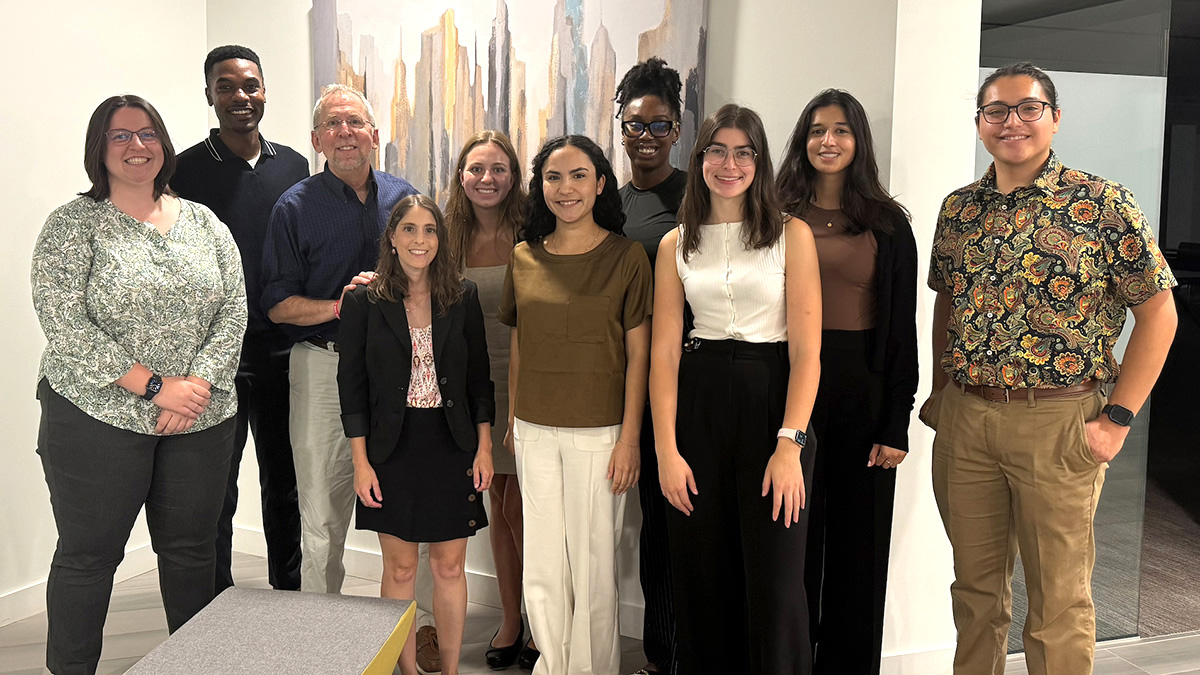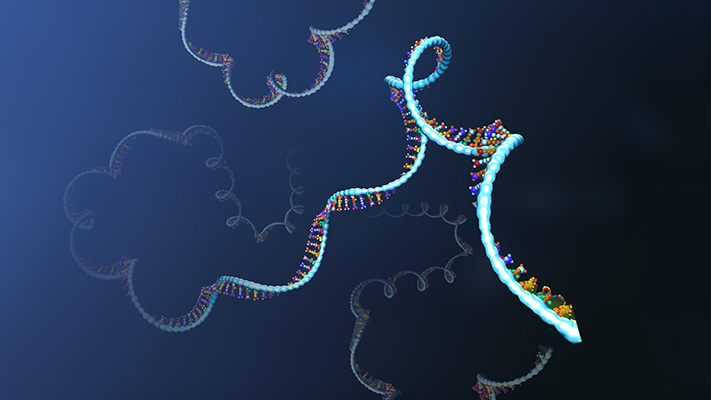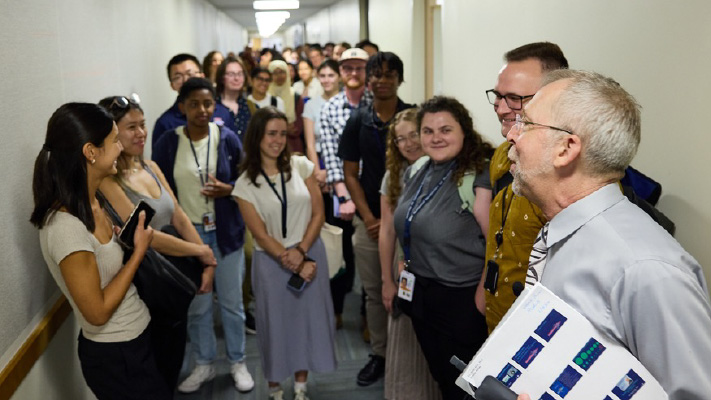Inaugural class of ASHG-NHGRI Genomics and Public Service Fellows arrives
I just returned from a productive and jam-packed trip to Australia, during which I received an informative update about all-things human genomics going on Down Under. The week included visiting three cities, giving three talks, touring multiple genomics research institutions, and meeting with many talented researchers, clinicians, trainees, and government officials. My last visit to Australia was 12 years ago, and it is truly amazing how much has happened in genomics since then, including some impressive advances in genomic medicine implementation. You can see photos from my trip on my Instagram, @nhgri_director, and on my other social media profiles.
If you are looking for something new to listen to this summer, the Genetically Speaking podcast, produced by the American Society for Human Genetics (ASHG), recently released a two-part episode featuring Christopher Donohue, Ph.D., NHGRI’s historian. In these episodes, Dr. Donohue discusses preserving the history of the Human Genome Project; the importance of conversations about eugenics and scientific racism; ableism and addressing potential harms in research; and the career journey that brought Dr. Donohue to study these historical areas and their legacies. The two podcast episodes are available on ASHG’s website and elsewhere.
NHGRI’s Education and Community Involvement Branch is hosting its annual Short Course in Genomics from July 16 – 19. Designed for middle school and high school teachers and community college faculty teaching scientific courses, this course helps these educators incorporate genomics into their curricula through presentations, discussions with experts, and hands-on demonstrations of lab activities. More information about this annual event and additional resources can be found on the short course webpage.
All the best,
![]()
Genomics Research Spotlight
Effect of genomic and cellular environments on gene expression noise
Hong, et al.
Genome Biol., 2024 May, PMID: 38790076
To function, cells must read the instructions encoded in DNA to make proteins. One of the first steps of this process, called gene expression, involves copying DNA into RNA. While this is a highly regulated process, scientists have discovered that cells with identical DNA produce varying amounts of RNA in seemingly random ways. This variability is referred to as gene expression noise, and since the amount of RNA can change the amount of protein that is produced, gene expression noise can contribute to differences among cells that contain the same DNA. In a recent publication, researchers from Washington University introduced a new tool for exploring the sources of gene expression noise. Using the new tool, the researchers found that different chemical modifications on proteins called histones, which the DNA is wrapped around, contribute to gene expression noise. They also found that the binding of transcription factors, proteins critically involved in the production of RNA, can introduce variability. Moreover, the researchers highlight that because this tool can analyze the gene expression noise produced at different locations across the genome, this technological innovation could play a crucial role in identifying safe and effective sites in the genome for targeting genome editing, such as that used for gene therapy.
This research was funded in part by the NIH with a grant to Barak Cohen, Ph.D., who is a professor at Washington University; that grant is part of the NIH Research Project Grant (PA-20-185).
About The Genomics Landscape
A monthly update from the NHGRI Director on activities and accomplishments from the institute and the field of genomics.
Last updated: July 11, 2024




